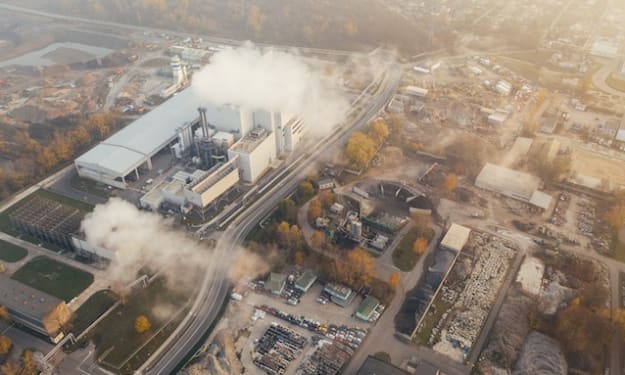The Climate Crisis: Understanding and Addressing the Urgency of Our Changing Climate
A Comprehensive Look at the Climate Crisis and Effective Strategies for Action

The climate crisis has become one of the defining challenges of our time. Discover what the climate crisis entails, its causes, and proactive measures to mitigate and adapt to this global challenge.
Understanding the Climate Crisis: The climate crisis refers to long-term changes in temperature patterns, precipitation, storms, and the Earth's climate system. Explore the causes behind this crisis driven by human activities and greenhouse gas emissions.
Causes of the Climate Crisis: Learn about the primary drivers of the climate crisis, including the burning of fossil fuels, deforestation, industrial processes, and agricultural practices. These activities contribute to rising greenhouse gas emissions and exacerbate the crisis.
Consequences of the Climate Crisis: Uncover the severe consequences of the climate crisis, such as rising sea levels, extreme weather events, disrupted ecosystems, declining agricultural productivity, and public health risks. Understand how these impacts affect societies and the environment.
Addressing the Climate Crisis: Discover effective strategies to combat the climate crisis and limit its consequences. Transition to renewable energy, embrace energy efficiency and conservation, promote sustainable transportation, reforestation, and implement sustainable agricultural practices.
Renewable Energy Transition: Understand the importance of shifting away from fossil fuels and adopting renewable energy sources like solar, wind, and hydropower. Explore the benefits of investing in clean energy technologies and policies for a successful transition.
Energy Efficiency and Conservation: Learn how energy-efficient technologies and practices reduce energy demand and emissions. Discover methods to improve energy efficiency in residential and industrial sectors, helping protect the environment and save costs.
Sustainable Transportation: Discover sustainable transportation alternatives like electric vehicles, improved public transportation, and promoting cycling and walking. Explore the benefits of these options in reducing emissions and building greener cities.
Reforestation and Forest Conservation: Uncover the significance of protecting and restoring forests in carbon sequestration and biodiversity preservation. Learn about initiatives like afforestation and reforestation that contribute to climate regulation.
Sustainable Agriculture: Explore the role of regenerative farming practices, reducing food waste, and investing in resilient agricultural systems. Discover how sustainable agriculture mitigates emissions and ensures food security.
International Cooperation and Policy Changes: Understand the importance of global collaboration and policy changes to tackle the climate crisis. Discover how international agreements, stringent regulations on emissions, and support for sustainable practices play a crucial role.
Conclusion: The climate crisis demands immediate global action. By understanding its causes, consequences, and solutions, we can work towards a sustainable future. Join the collective effort to address the climate crisis through international cooperation, policy changes, and individual choices.
Key Points: Climate Crisis - The Path Ahead
Building Climate Resilience: In the face of the mounting climate crisis, building resilience becomes paramount. Communities need to develop strategies to adapt to adverse climate impacts. This might include creating robust disaster management plans, improving infrastructure to withstand extreme weather events, and investing in climate-resilient agriculture. Building resilience ensures communities can withstand, recover from, and adapt to changes in climate.
Green Technologies: Green technologies play a pivotal role in addressing the climate crisis. From energy generation to waste management, green tech offers sustainable solutions. Carbon capture technologies provide a way to mitigate CO2 emissions by capturing and storing them underground. Meanwhile, waste-to-energy initiatives turn what was once a burden into a sustainable power source.
Education and Climate Literacy: A well-informed public is crucial to drive change. Climate literacy programs that educate people about the realities of climate change and its effects on our world are essential. Understanding the climate crisis helps foster a sense of responsibility, encouraging more sustainable lifestyle choices.
Policy Interventions: Governments worldwide have a crucial role to play in driving change through policy interventions. This includes measures like carbon pricing, which puts a price on carbon emissions to incentivize companies to reduce their carbon footprint. Similarly, funding for climate research can fuel innovation in the field of green technology.
Climate Finance: Climate finance is crucial in the fight against the climate crisis. It involves channeling funds towards climate change mitigation and adaptation projects. Funds are often geared towards the development and deployment of green technologies, infrastructure upgrades, and projects aimed at reducing emissions.
Role of Private Sector: The private sector has a considerable role to play in combating the climate crisis. This includes adopting sustainable business practices, making responsible investment decisions, and transitioning towards net-zero emissions. Companies worldwide are making climate pledges, demonstrating their commitment to sustainable operations.
Public Participation: Citizen involvement is a deciding factor in combating climate change. This means not just making lifestyle changes individually, but participating in climate movements, backing climate policies, and pushing corporations to make greener choices.
Sustainable Urban Planning: Sustainable urban planning involves creating designs that minimize environmental impacts. Concepts like green buildings, urban farming, and efficient waste management are part of this. Sustainable cities can significantly reduce their carbon footprints while providing high-quality living standards to their residents.
Biodiversity Conservation: Biodiversity conservation is interconnected with climate action. Healthy ecosystems sequester more carbon, making the protection of wild habitats from deforestation and pollution crucial. Conservation efforts further provide protection against the loss of diverse species, preserving the health of our planet.
In essence, combating the climate crisis involves a multi-faceted approach. There's no one-size-fits-all solution, but every bit counts, and collective action is the way forward.






Comments
There are no comments for this story
Be the first to respond and start the conversation.